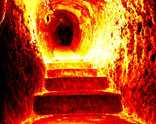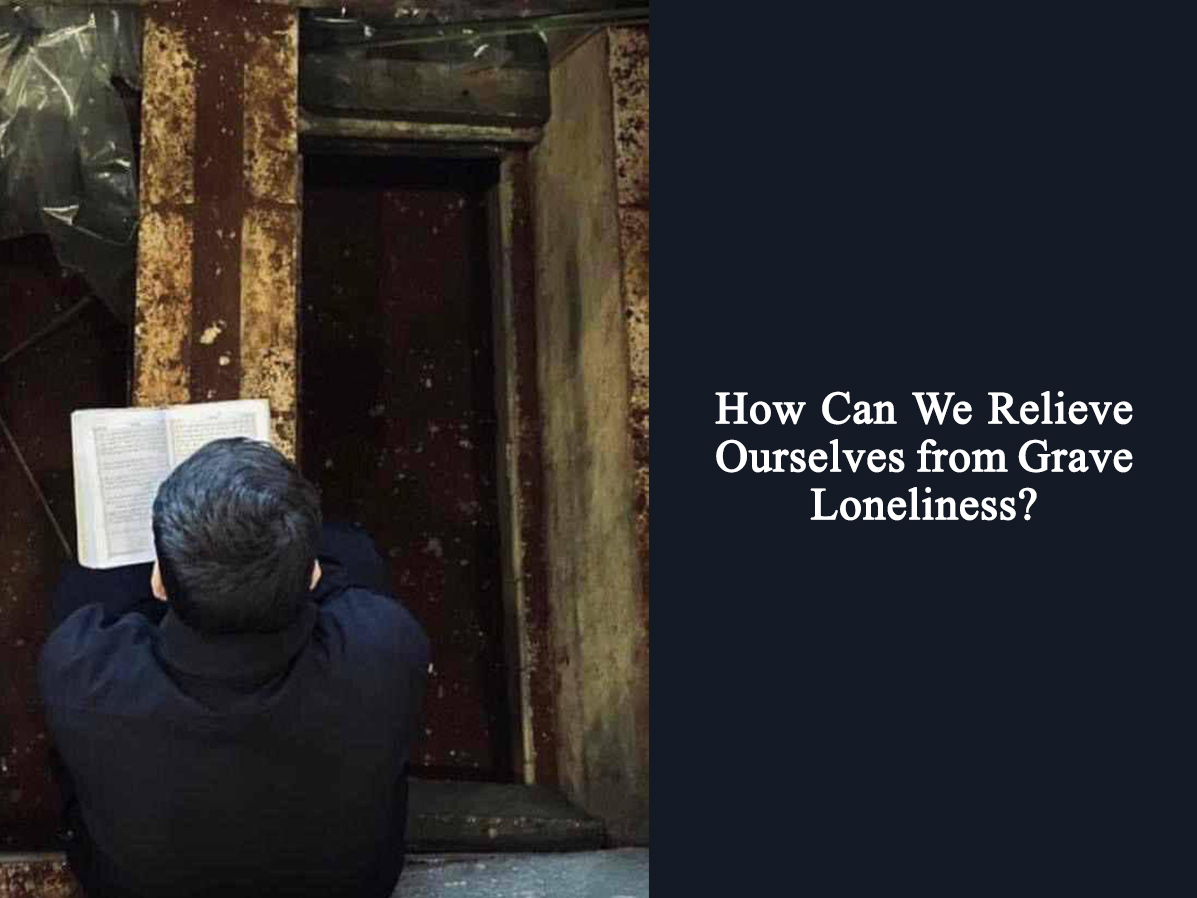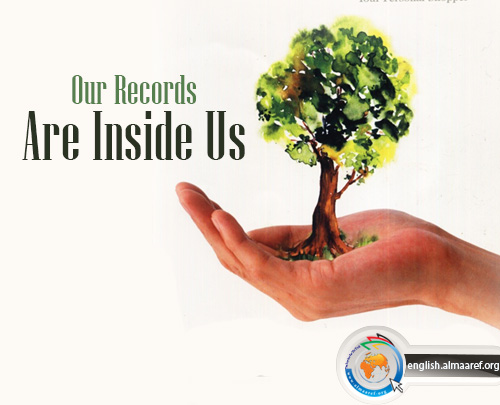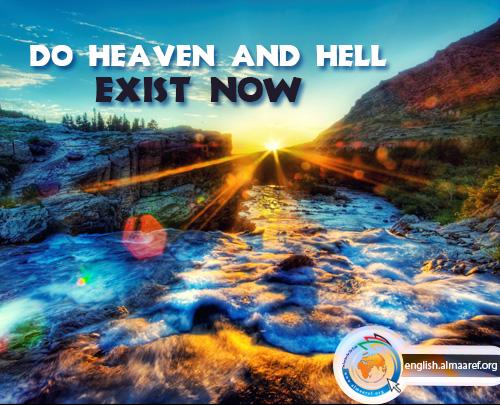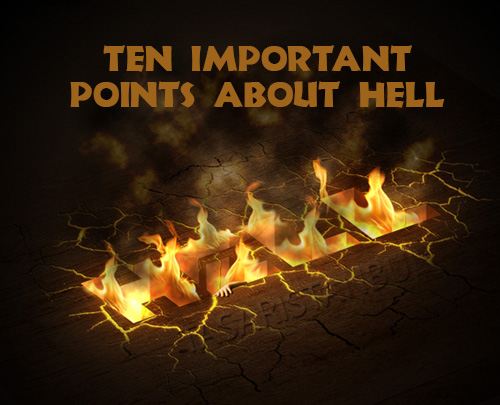Fire of Barzakh Leaps Out of a Grave
Death & Purgatory
Quoting narrations of some reliable and trustworthy people, the late Shaykh Mahmood Iraq has mentioned in Dar Al Salam that once we went to the graveyard of Imamzada Hasan (Tehran). Sun had not yet set. One of our companions sat down on the stone of a grave. Suddenly he shouted: Please lift me up. When we lifted him we saw that the stone was almost red hot.
Just think. How great is the chastisement meted out to the soul that even the gravestone also becomes so hot. He says: I recognized the owner of that grave but I would not disclose his name so that he may not be defamed among people.
Also it is said about another man who was buried in Qum. Flames of fire were leaping out of his grave which had burnt down carpets over there.
Shaykh Shoostari (r.a.) mentioned in his Fire Hotter Than The fire Of This World
admonitions that the Lord of the worlds has said: Narun Hamiyah meaning: Hot fire. Is there, then, any cold fire also? Yes. If it is possible to make a comparison, the fire in our world is cold compared to the fire of Barzakh. Nature makes a comparison between the two fires and to understand which one is really hot.
Saaiqah (The Lightning In Space) Is The Biggest Worldly Fire
Shaykh Shoostari (r.a.) says that if a comparison is made between the fire of wood and charcoal and the fire of Sadiqah (lightning in the sky) it will be known that Saaiqah is a thin (fine) fire which is created by the bouncing and hissing of clouds. It is so hot that it burns out everything it touches and then slips away instantly. It neither returns nor stays anywhere. Nothing can make it cold. If it falls on a tree it turns it into coal at once. If it falls on an ocean it burns it upto its bottom and fries even the fish in the bottom of the sea. Only Saaiqah is the real fire. The embers in a hearting also is fire but that fire can be put off by shedding a little water or some dust on it. Its heat and burn has some limitations.
Now you will have understood that the fire of Barzakh cannot be compared with the fire of this world, not even with Sadiqah (lightning). If someone's allegorical body and his soul is under torture in Barzakh, it is possible (though not always necessarily) that his or her material earthly body may also get affected. What is contrary to it is also observed. Pleasing and sweet fragrance spread in the absence of any scent, or flowers or burning of aloes wood from the graves of some dear servants of God.
Those Who Do Not Experience Fear
In the news and hadiths of Holy Imams there are tidings showing that some good servants of God are protected by God from the fear and punishment in the grave during the period of Barzakh. Some of them are those to whom Talqeen was recited. Here we mean the third Talqeen which is recited after burial.
Yahya Bin Abdullah says: I have heard from Imam Sadiq (a.s.) that: What prevents you from reciting the words which protects your dead from seeing Munkar and Nakeer in their graves? I asked: Maula! What should we do? He said: When the dead has been buried, its guardian should sit near the grave and take his mouth nearer to the head of the dead, recite loudly: Yaa Fulaan…Quboor. Then he said: Munkar and Nakeer tell one another to return as Hujjat (argument) has been taught to the dead. (Wasail Al Shia, Book of Cleanliness, chapter 35). (The first Talqeen should be recited at the last moments of the dying person and the second at the time of lowering the body in the grave.
It is likely that someone may say: What can a dead person understand? But, as we have described earlier, the soul (spirit) of the dead remains near its body and hears better than we can. Some may also ask: How can an admonition (talqeen) recited in the Arabic language be understood by a non-Arab body? The reply is that, when one goes away from this material world of water and earth all languages are equally comprehensible for him or her. Linguistic limitations belong only to the material world.
Death At A Time Of When Mercy Is Rising
Another group of people who are protected from the squeezing of grave and fear and Barzakh torture are those who die between time of Zuhr on Thursday and Friday, as these are the hours when divine mercy rains allowing such persons its full benefit. God covers them in His kindness. This is also a kind of divine kindness that he showers on His servants.
Jareedatain And Testimony Of Forty Persons
The burying of Jareedatain (meaning: Two green branches of date tree or plum or pomegranate) along with the body of the dead is one of the things about which it is promised that these things come in the way of the chastisement in the grave. Of course date branches are the best and they must be green.
There are many narrations on this matter in Wasa’il Al Shia, Kitaabut Tahaarat, Baab: 13). One by Imam Baqir (a.s.) is as follows: The Imam (a.s.) says: The body is not punished until the said branches remain green and God willing, it will not even after the branches become dry.
One more protecting thing is the testimony of fourteen or more persons about the true belief of the dead and their prayer for the forgiveness of the dead. Imam Sadiq (a.s.) is quoted in Anwar E Nomania. He said: If forty people gather near a dead person and say: Allahumm… meaning: O God! We know nothing except the good deeds done by this person. God responds: I have accepted your testimony and have forgiven all of his sins not known to you.
Hazrat Dawood Did Not Offer Burial Prayer For A Worshiper
Imam Sadiq (a.s.) is also reported to have said that there was a worshiper among Bani Israel about whom God revealed to Dawood (a.s.) that he (said worshiper) was a hypocrite. When he died, Dawood (a.s.) did not offer prayer on his body. Others went and forty persons prayed for the salvation of the dead, saying: O Lord! We know nothing about this man except that he was doing good deeds and you know better. So kindly forgive him (Allaahumma…Lahu). Then when that body was given a wash another group of forty persons arrived and they also uttered the same words as they did not know about the hidden matters of that deceased. Then it was asked through revelation to Dawood (a.s.): Why did you not pray for him? Dawood (a.s.) replied: O Lord! I did not pray You had informed me that he was a hypocrite worshiper. A voice came from heaven: Though it is true, a group of people has testified that he was a good man so I also confirmed it, accepted their testimony and forgave him. It is also a very great kindness of the Almighty that He pardons His servants and does not punish them even though they were not eligible for such salvation.
Testimony Of Momins By Khaake Shifa (healing earth) On The Shroud Of Allamah Majlisi (r.a.)
It was because of this that pious people, especially earlier religious ulema (scholars) used to keep their coffin cloth (shrouds) ready beforehand and to request their friends and the faithful to write their testimonies of that coffin cloth. Muhaddis Jazaairi (r.a.) writes: That his teacher Allamah Majlisi (r.a.) use to request his Momin friends to write their testimonies with the earth of Karbala on his shroud and they used to comply, by recording: La Raib Fe Eemaaniri meaning: Doubtlessly he was a faithful person and put their seal under it.
Among all such things done for protection from the chastisement in grave effectively is to place (put) the Holy earth of the grave of Abu Abdillah al Hussein (a.s.) in one's grave and also to anoint the forehead and both palms of the dead with it.
* By: Ayatullah Shaheed Sayyid Abdul Husain Dastghaib.


